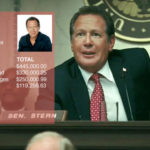Taxes are set to decline in many states across the nation Tuesday, in an effort to encourage businesses to relocate and hire new employees, USA Today reports.
For the majority of states, July 1 is the beginning of the fiscal year, at which point tax cuts can be introduced, and while states have declined to cut tax rates in years, the proposed changes are by no means across the board. Most of the tax cuts are fairly targeted.
Brian Sigritz, director of state fiscal studies at the National Association of State Budget Officers noted the marked change in fiscal trends.
“In 2010, we really saw a lot of tax and fee increases to bring revenues into cash-strapped state coffers,” Sigritz said. “This year was the first year (since then) governors actually proposed tax and fee decreases. We’ve definitely seen a movement to try to reduce taxes and fees and encourage job growth.”
Indiana and Rhode Island, for instance, are dropping corporate tax rates, with Rhode Island dropping the rate from 9 percent to 7 percent, and Indiana gradually decreasing the rate from 7.5 percent to 7 percent. In a survey conducted earlier in June, Rhode Island ranked last in terms of how friendly the state’s policies are towards small businesses, obtaining a grade of “F.”
“Reducing the corporate tax rate, eliminating the estate tax cliff, and investing in job training and economic development projects, will make Rhode Island more competitive, create more jobs, and strengthen our economic recovery,” said Laurie White, president of the Greater Providence Chamber of Commerce.
Some of the tax decreases impact consumers as well, particularly in the energy sector. In California, the gas tax is being cut by 3.5 cents, although in New Hampshire, the gas tax is increasing by 4.2 cents in order to pay for highway improvements.
Critics have argued that states have no way of knowing whether tax cuts have any effect on business hiring rates, and especially that a drop in corporate tax rates represents an election ploy.
“It’s not surprising; states are doing a little bit better and can afford to ease the tax burden. It’s also an election year for a lot of states, so there might be gimmicks for cutting taxes and making it sound better than they actually are,” said Lucy Dadayan, senior policy analyst at the Nelson A. Rockefeller Institute of Government.



5 comments